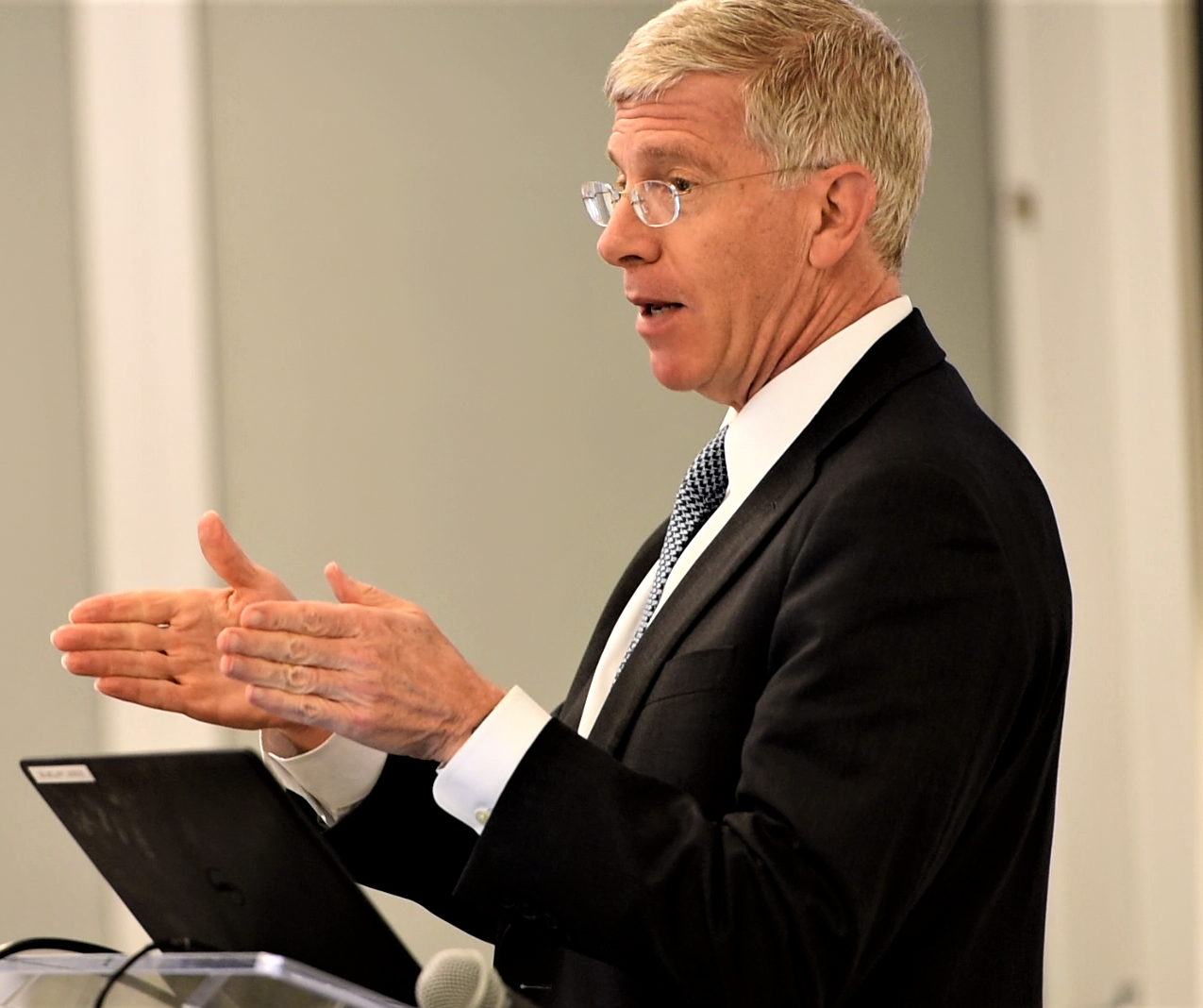Shared Nuclear Future Workshop


- Robert Rosner, University of Chicago
- Laura Holgate, Nuclear Threat Initiative
- Page Stoutland, Nuclear Threat Initiative
- Charles Clancy, formerly with Hume Center, Virginia Tech
- Everett Redmond, Nuclear Energy Institute
- Moderator: Joseph Pilat, Los Alamos National Laboratory/Woodrow Wilson Center
The nuclear energy field faces challenges from international competition, disruption from new and emerging designs in fuel cycle technologies, and distinctive threats to physical and cyber-infrastructures. Recent discussions about U.S. nuclear technology exports frame a conflict between nonproliferation priorities and commercial viability. This panel focused on recent developments and their significance for the future of the nuclear field. Panelists identified and analyzed critical junctures in international nuclear trade, emerging technologies in the nuclear fuel cycle (including new reactor designs), and challenges posed by cyberwarfare and other dangers.

Daniel B. Poneman is president and chief executive officer of Centrus Energy Corp. From 2009 to 2014, he was the Deputy Secretary of Energy. His responsibilities spanned the range of U.S. energy policies and programs, including cybersecurity, project management, national security, and international cooperation. He was also responsible for the Department’s efforts on resilience and emergency response, in cases ranging from Fukushima to Hurricane Sandy.
In prior tours in government, Mr. Poneman served as a White House Fellow and as Director of Defense Policy and Arms Control for the National Security Council. From 1993 through 1996 he was Special Assistant to the President and Senior Director for Nonproliferation and Export Controls at the National Security Council. His responsibilities included the development and implementation of U.S. policy in such areas as peaceful nuclear cooperation, missile technology, space-launch activities, sanctions determinations, chemical and biological arms control efforts, and conventional arms transfer policy.
Mr. Poneman has published widely on national security issues. His third book, Going Critical: The First North Korean Nuclear Crisis (with Joel Wit and Robert Gallucci), received the 2005 Douglas Dillon Award for Distinguished Writing on American Diplomacy. Mr. Poneman is a Senior Fellow at the Belfer Center for Science and International Affairs at the Harvard Kennedy School, a Distinguished Fellow at the Paulson Institute, and a member of the Council on Foreign Relations. He received A.B. and J.D. degrees with honors from Harvard University and an M.Litt. in Politics from Oxford University.

- Adam Scheinman, National War College
- Douglas Shaw, Nuclear Threat Initiative
- Ted Jones, Nuclear Energy Institute
- Robert Ichord, Atlantic Council
- Michael J. Ford, Harvard University
- Moderator: Sonja Schmid, STS VT
The military and civilian applications of nuclear energy in the U.S. have always been interdependent. As strategic priorities have evolved, the military has increasingly relied on the civilian nuclear industry for support. This panel addressed the intersection of national security and commercial viability in the nuclear industry. Panelists discussed how managing overlaps between military and civilian nuclear spheres creates both challenges and opportunities for rethinking conventional tools of controlling nuclear matters.

- William Charlton, University of Texas Austin
- Kasia Mendelsohn, National Nuclear Security Administration, Department of Energy
- Rebecca Hersman, Center for Strategic and International Studies
- Lori Brady, Nuclear Energy Institute
- Noël Bakhtian, Center for Advanced Energy Studies, Idaho National Laboratory
- Moderator: Patrick Roberts, SPIA VT
This panel explored ways to develop the diverse skill sets necessary to manage a global nuclear energy industry, focusing on the pipelines for training individuals and ways to bridge gaps and silos that artificially separate technical aspects from nuclear policy.
For more information please contact Sonja Schmid: sschmid@vt.edu


